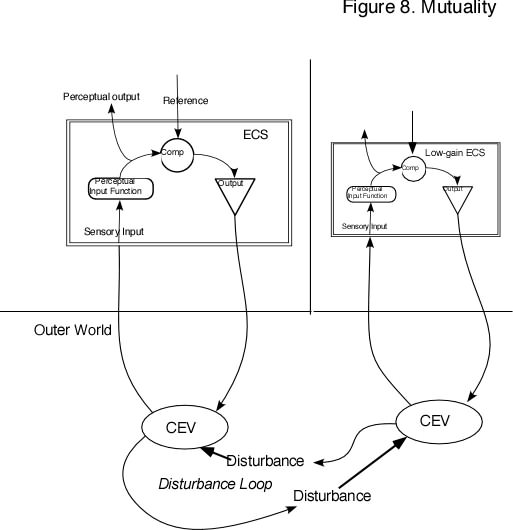
Mutuality refers to a situation in which each of two control systems
acts independently, but in which the side effects of each controlling its
own perception is incidentally beneficial to the other's ability to control.
One way of looking at this is that the CEV for each contrtibutes to the
disturbance that affects the CEV of the other, as shown in Figure 8, and
when one CEV is stabilized, the impact of the disturbance on the other is
reduced.
Mutuality occurs by chance. There is no intent on either side to help the other, but help there is. If the two partners stay together, each performs better than it can alone. Much of society seems to work this way. People doing their "own thing" (making money, for example) stabilize the environment for other people (food and goods remain generally available rather than being subject to the vagaries of the hunt). Nobody makes money in order that other people may be better able to control their perceptions, but that is often a side-effect (the reverse can happen, of course, but normally it does not). Such mutuality is the basis of the free market philosophy.
The development of Mutuality and its evolution into societies is discussed here.
<--Previous | Main |